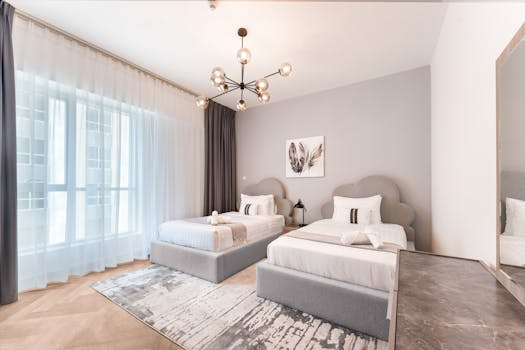Hotel Room Temperature Control Affects Sleep Quality
A good night’s sleep is crucial for both physical and mental well-being, and the quality of sleep can be greatly influenced by the environment we are in. When staying at a hotel, one of the key factors that can impact our sleep is the temperature of the room. Many may not realize the role that hotel room temperature control plays in sleep quality, but it is a crucial aspect that should not be overlooked. In this article, we will dive deeper into the topic and look at how hotel room temperature control affects sleep quality.

The Science Behind Sleep Temperature Preference
Before we dig into the details of how hotel room temperature control can impact sleep, it is essential to understand the science behind our body’s temperature regulation during sleep. Our body’s internal temperature drops when we sleep, and this is a natural process that helps us fall asleep and stay asleep. The ideal temperature for sleep varies for each person, but it generally falls between 60-67 degrees Fahrenheit.
When our body’s temperature is too warm, it can cause discomfort, leading to restlessness and difficulty falling asleep. Similarly, if the room is too cold, it can lead to shivering and discomfort, causing interruptions in our sleep. Therefore, maintaining the right room temperature is vital for a good night’s rest.
The Importance of Hotel Room Temperature Control
When we travel and stay at a hotel, the external environment is unfamiliar, and it takes time for our body to adjust to the changes. One of the significant differences we experience is the room temperature. However, most hotels have heating and cooling systems in place, which allows guests to adjust the room temperature as per their preference. This feature not only provides comfort but also plays a crucial role in ensuring a good night’s sleep.
Regulating Room Temperature for Optimal Sleep Quality
As mentioned earlier, our body’s ideal temperature for sleep falls between 60-67 degrees Fahrenheit. Therefore, when booking a hotel room, it is crucial to check if the room temperature can be controlled, especially if you have specific temperature preferences for sleep.
If the room temperature is not adjustable, it can impact your sleep quality significantly. For example, if the room is too warm for your liking, your body will have a difficult time cooling down, causing restlessness and interrupted sleep. Similarly, if the room is too cold, you may have trouble falling asleep and staying asleep, leading to sleep deprivation.
The Role of Humidity in Sleep Quality
Apart from the temperature, humidity levels in the room can also impact sleep quality. High humidity levels can make the room feel stuffy and uncomfortable, making it difficult to fall asleep. On the other hand, low humidity can dry out your nasal passages and make breathing uncomfortable, again resulting in interrupted sleep.
Having a humidifier in your hotel room can help maintain the right humidity levels, ensuring a comfortable and peaceful sleep.
Conclusion
In conclusion, hotel room temperature control is a crucial aspect that can impact sleep quality. A comfortable room temperature not only helps in falling asleep but also ensures uninterrupted sleep, leading to a refreshed and rejuvenated morning. So the next time you book a hotel room, don’t forget to check if the room temperature can be adjusted, as it plays a significant role in your overall sleep experience.







